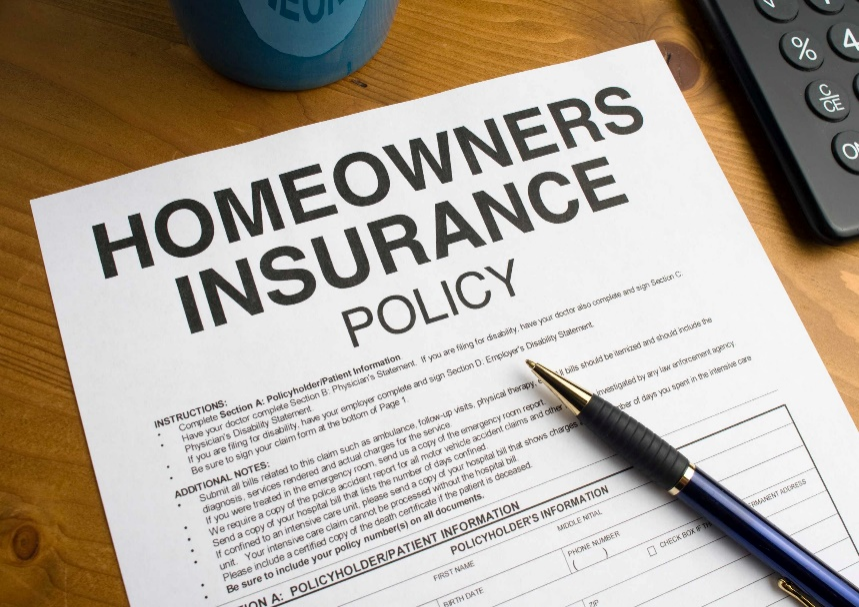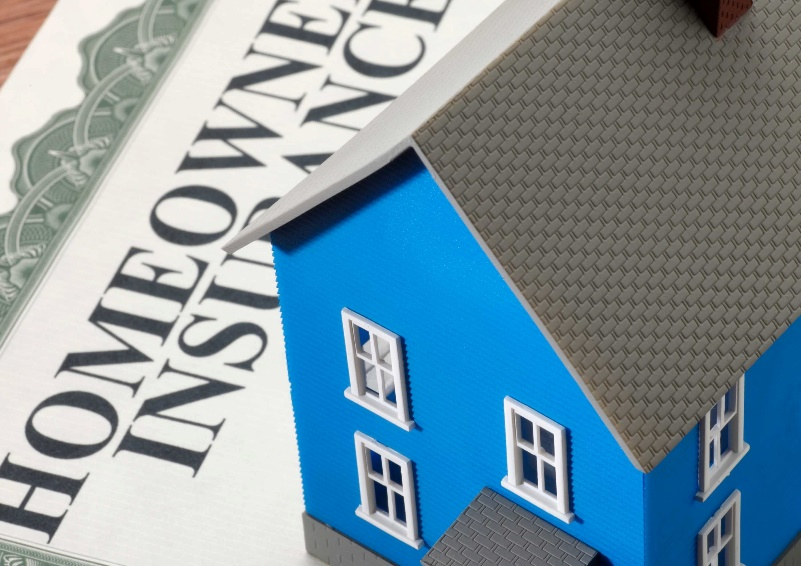A homeowner’s insurance provides financial protection if specified risks cause damage to your home or possessions. Perils are defined in insurance plans as situations when your property or possessions are damaged. If it is mentioned in your policy, it is a "covered event."
Claiming with your insurance provider after a fire, leak, or other unplanned tragedy might assist you in paying for repairs or replacing your belongings. A homeowner’s policy will also cover your living expenses if your home is temporarily uninhabitable. Most of the legal costs incurred in defending lawsuits brought about by injuries sustained while on your property will also be covered.

How Does Homeowner’s Insurance Work?
A homeowner’s insurance works by providing you with protection in case of anything bad happens suddenly to your home or property. So, in this accidental situation, you can claim it with your insurance firm or the insurance agent.
Whereas the larger your deductibles must be to save money on your premiums. These days, most insurance providers advise having a $500 minimum deductible. You might save up to 25% if you could double the number of your deductibles to almost $1000.
What Coverage Does Home Insurance Provide?
Things that are covered under homeowner’s insurance:
- Dwelling - This refers to any structural damage to your home. Nothing inside your house or on your property will be covered by it.
- Other structures - This refers to outbuildings that are still part of your property, such as a fence or a garage.
- Loss of use - Protection for any costs incurred while your house is uninhabitable due to an insured incident.
- Medical payments - Your homeowners’ insurance will also pay for the injured person's medical expenses, up to a specific level, if they are injured on your property.
- Personal liability - This provides an extra layer of financial security to help with the expense of defending yourself if someone is injured on your property.
- Personal property - Your clothing, furniture, gadgets, and other personal possessions are included in this category.
Tips to Lower Homeowner’s Insurance Premium
You may lower your insurance expenses by adjusting your coverage and investing long-term. Make sure your deductible won't be jeopardized before making any changes to your home's coverage by consulting your insurance agent.
There are several tips to lower your homeowner’s insurance premiums that you can follow.
- Increase your deductible - Your insurance prices may be immediately impacted by raising your deductible. Because you'll have to pay more out of pocket when a claim is made, a larger deductible will result in a cheaper premium. Be reasonable if you decide to raise your deductible. You don't want to be in a situation where you can't afford a necessary repair because the deductible is too high.
- Strengthen your house - Insurance rates may be decreased by making certain improvements, such as installing storm shutters, strengthening the roof, seismic retrofitting an older house, and upgrading your utilities. These upgrades reduce the possibility of fire and water damage.
- Flooding - The most common insurance claim in the US is for flood damage. You may do things to lower your insurance cost if you live in a flood zone with a high risk of flooding. You might reduce your insurance premiums by putting in the right flood openings, raising your utilities above the ground, and elevating your property. Consider including flood insurance if you reside in a low- to moderate-risk location. While the initial cost may be higher, you will be protected from water damage.
- Try to get discounts - Ask a certified insurance agent about discounts while looking around for insurance. Similar to vehicle insurance, home insurance offers several discounts, including those for customer loyalty programs, combining your policies, and having a claim-free past.
- Eliminate coverages that are no longer needed - Review your insurance and remove any coverage that is no longer necessary. Always verify that your insurance will cover the cost of replacing your home's structures and belongings. If your house is damaged and you have to start over after cutting your coverage to save a few dollars might cost you much more. Ask an insurance representative how much it will cost to rebuild your house. You'll need adequate coverage if serious damage happens to reconstruct your house. You may have to pay out of pocket to rebuild your house if you don't have enough coverage, which may be quite expensive.
- Home security improvements - You may save money by installing hard-wired smoke detectors, burglar alarms, and deadbolts in your house. To be sure this will lower your rate.
- Credit score improvement - Your credit score is analyzed by your insurance company. Your rates will be higher if you have negative credit since your insurance provider considers you a high-risk client. Pay off your credit card debts and improve your credit by lowering your debt-to-income ratio.
- Take down aging structures - If you have other structures on your property, you undoubtedly have insurance coverage for them. To reduce the cost of your premium, think about dismantling your outdated structures.
- Bundling insurance policies - You may be able to save money by combining your insurance coverage. Ask your agent whether you may transfer all of your other policies to the same insurer as your homeowner's policy. The majority of insurance providers reward clients who have numerous insurance plans.
- Limiting the number of claims - Claim costs may increase your premium. Insurance companies may view you as a high-risk client if you file many claims. You can lose your service with your carrier by making too many claims. In the long run, paying for a modest claim yourself can be cheaper if you can afford it.
- Compare prices - Request prices from several insurance providers. You may find out where to get the finest coverage to suit your requirements and budget by requesting estimates from many firms.

Final Thoughts
If your house or possessions are destroyed or stolen, having home insurance might prevent you from falling into debt. However, this does not mean paying your premium should significantly reduce your savings. Finding ways to reduce your risk exposure might help you save money.




